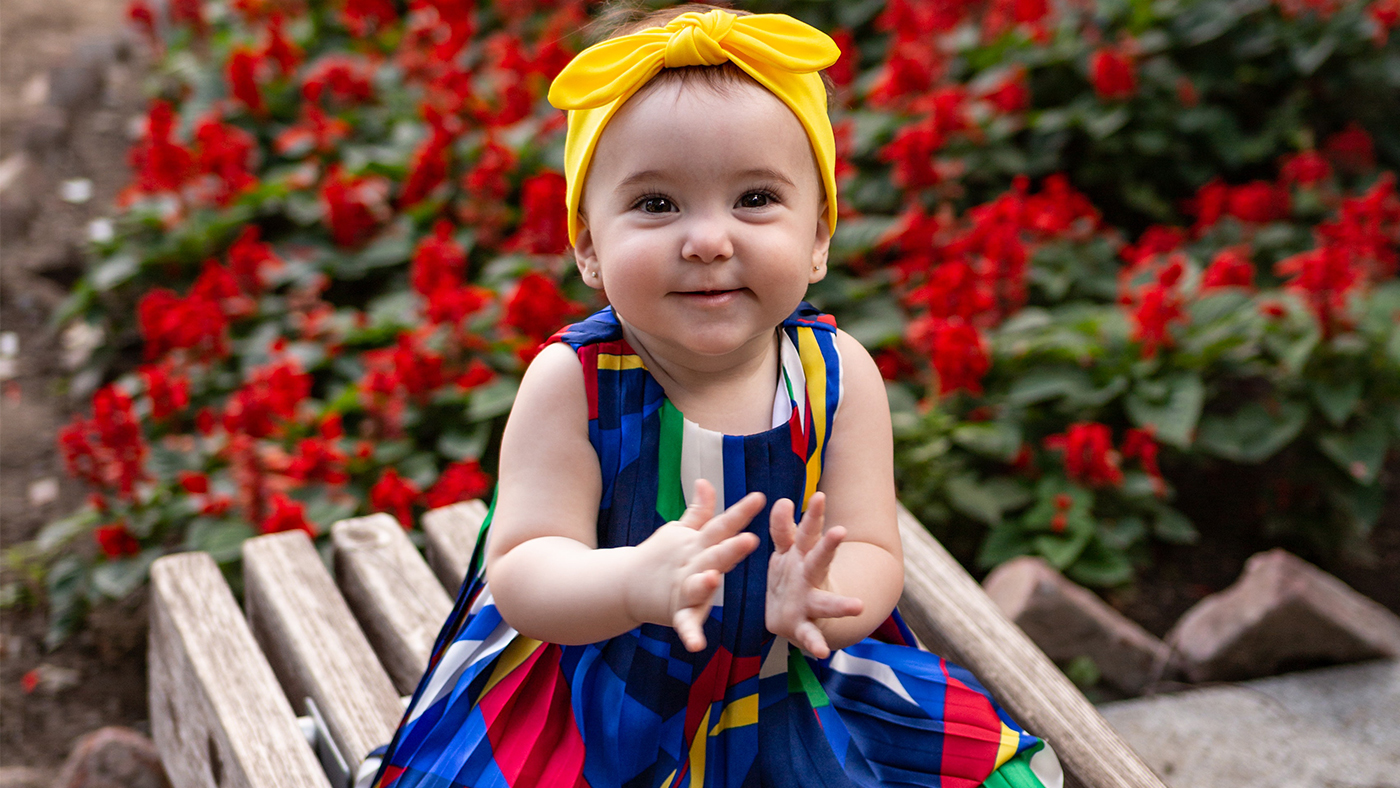Watches you and copies your movements and gestures

Your baby has been interested in you and in other people since they were born. As their visual skills have developed, you might have noticed them watching you as you speak to them and move around. They will now have the memory and physical skills to copy more of your gestures, so you might notice them copying simple actions in songs and rhymes.
Imitating
Imitation is an important aspect of your child’s learning, particularly in social and emotional, and cognitive skills. There is some discussion amongst researchers about when babies start to imitate gestures and movement, with some researchers believing that babies imitate some gestures from birth, and others taking a view that imitation develops through experience. Researchers also differentiate between simply copying the gesture (mimicry), copying the gesture and goal (imitation) and copying the goal but adjusting the actions to meet the goal (emulation). [1]
What is clear is that as your baby’s physical skills develop they will copy simple movements and gestures. They will progress from copying these without fully understanding the meaning of the gesture, to becoming more aware of when a particular gesture might be used and having a greater understanding of the intention of the movement or gesture they copy. Finally, they will have a greater understanding of the goal or intention linked to a movement or gesture and will seek to achieve the goal but might not copy the gesture or movement exactly. Your baby will move from simply being able to copy gestures or movements to understanding goals and adapting thinking about the goal as they decide what to copy. However, as they develop their problem-solving skills they might use some imitation and some goal emulation, as they select the most suitable approach for the task.
Some researchers suggest that imitation supports babies to understand other people and their intentions. [2] Imitation also helps your baby to practise movements and gestures that the people around them use to communicate and interact. Therefore, imitation is important as it supports them to join in with their family and other groups of people they see regularly. Your responses to your baby will help them to practise gestures, if you copy a movement or gesture they make your baby is more likely to repeat this gesture. Studies suggest parents copy their babies' gestures frequently, often without realising this is what they are doing. It is likely when you chat with your baby you will copy them and support them to develop their imitation skills. [2]
What next?
Learning by watching and copying other people's actions will continue to be an important method of learning for your baby. They will copy a wider range of gestures and movements and use social gestures at appropriate times as they begin to understand the intention of these gestures.
References
[1] Dickerson, K, Gerhardstein, P., Zack, E. & Barr, R. (2013) Age-related changes in learning across early childhood. A new imitation task. Developmental Psychobiology, 55(7), pp 719-732.
[2] Ray, E. & Heyes, C. (2011) Imitation in infancy: the wealth of the stimulus. Developmental Science, 14(1), pp. 92-105.